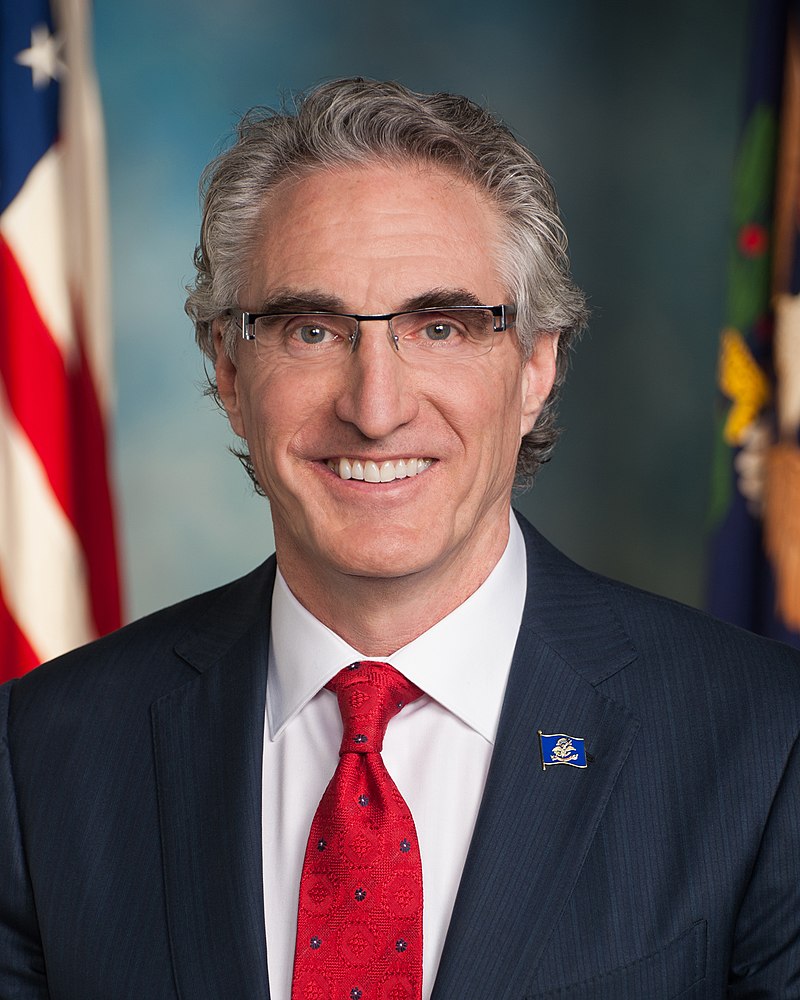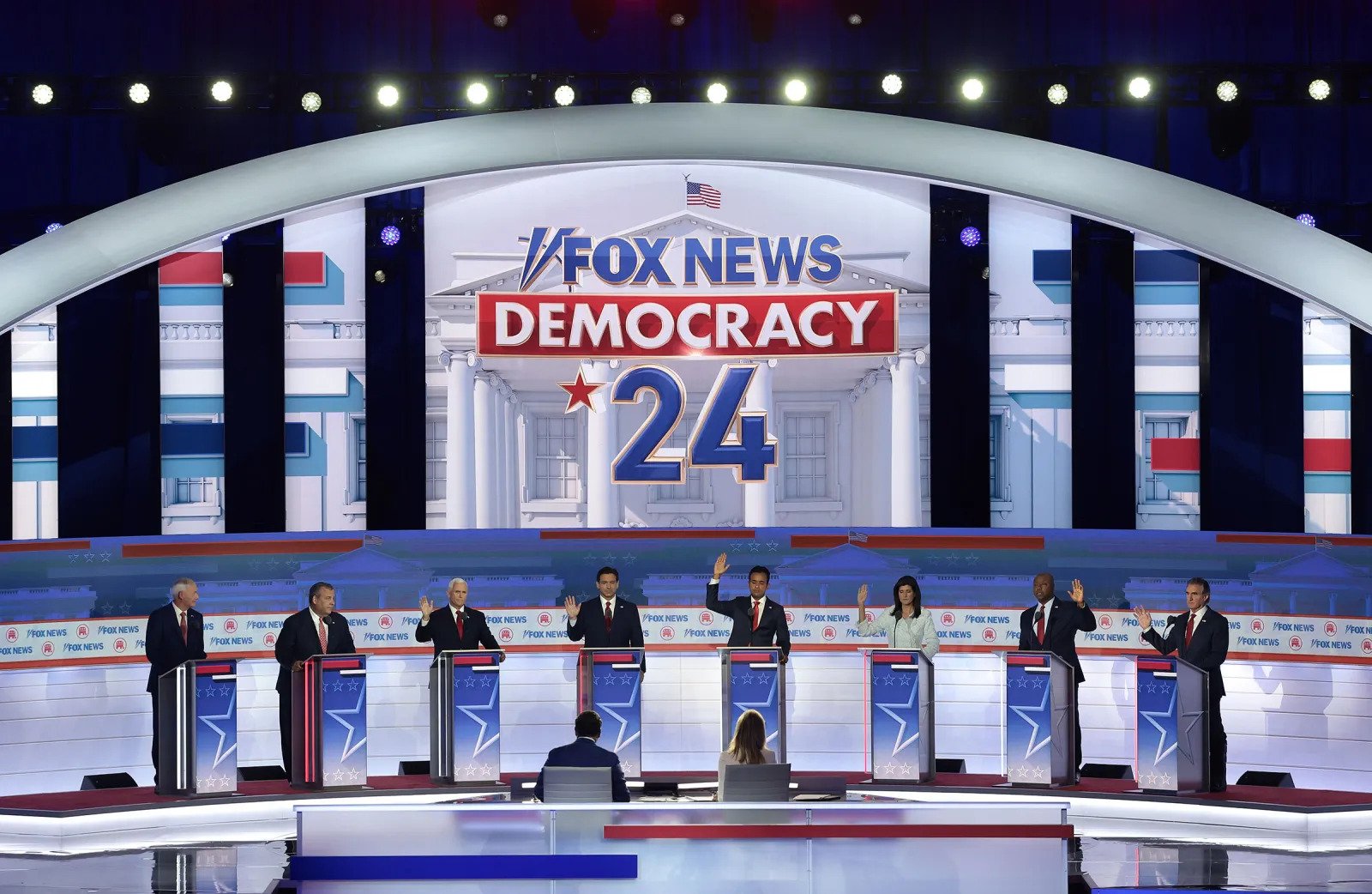American political debates are sort of like going to an amusement park. We’re always excited to get there and see all the unique assets and characters to which we’re not typically accustomed. And then we get there, and we almost think “What now?” It never lives up to expectations, it’s usually more tiring than fun, we never really learn or see anything new, and all anyone complains about are the lines, lines, lines.
Lines at an amusement park are as common as they are exhausting. And written and rehearsed lines parroted by the candidates every thirty-second rebuttal they receive are just about as common and exhausting.
Yet, somehow, someone always proposes the idea of heading to an amusement park each summer. And every time, we jump in the car.
The American political debate has always been more of a spectacle than they are informative, even before the common era of political tomfoolery. It was never as much about having the candidates lay out their views and letting the public make informed decisions off of that nationally-broadcasted information as it was about zingers, rehearsed soundbytes, and gaffes. The latter three facets of a political debate have been known to make and break campaigns. Notable examples include Michael Dukakis’ (D-MA) uphill presidential bid in 1980 and Senator Marco Rubio’s (R-FL) embarrassing repeated lines in the 2016 GOP debates ahead of the New Hampshire Primary.
Going over debate content is important, but it’s also important to understand the characters you’ll typically see at those debates, because just as the debates themselves are as formulaic as ever, so are the candidates.
Last Wednesday night saw the official launch of the 2024 Presidential campaign, as the non-incumbent party – in this case, the Republicans – squared off in the first public forum organized by the ever-wise RNC in Milwaukee, Wisconsin.
The elephant in the room – or not in the room – had to be addressed, and instead of devoting a solid fifteen or twenty minutes to a more substantive issue, FOX News Moderates Martha McCallum and Brett Baier felt it was necessary to quiz each candidate on their thoughts on Donald Trump.
By all qualifications, Trump should have been front-and-center on the stage. He has more than met polling and fundraising requirements, but the problem for him looms in the form of the loyalty pledge, a controversial promise to support the eventual nominee of the Republican Party, regardless of who might earn it.
Trump refused to sign the pledge, and was therefore denied participation.
Trailing in a distant second, but second nonetheless, is “America’s Governor,” Ron DeSantis (R-FL).
DeSantis has long been the darling of the right looking for Trump-policies in a more palatable body. Despite opinions of DeSantis’ awkward campaigning, many believe his timing is more his enemy than anything else. Instead of governing Florida for two more years and running in 2028, his jump into the race now seems – to some – like a misfire.
Others assert that DeSantis’ entry into the race, while a PR liability on its own, would not compare to the chastising he would have possibly received from party leadership and Democrats alike had he sat this one out. Instead of creating his own brand of politics, waiting another four years might have seen him miss his window, like Chris Christie (R-NJ).
Speaking of the beach-closing, bridge-master of everyone’s favorite state, Christie’s role in this debate – much like last time – is that of the attack dog. He knows he can’t win, party leadership knows he can’t win, and pretty much everyone you speak to knows he can’t win. Every four years, we always ask the same questions. “Who’s this guy?” “Does he think he can actually win?” “Isn’t North Dakota a myth?”
Christie isn’t in this to win, he’s in it to tank as many candidates as he can. Many ascribe the demise of Marco Rubio’s 2016 campaign to Christie’s attacks of his prepared, canned soundbytes.
Then we arrive at Asa Hutchinson, the former governor of Arkansas. In addition to being the opposite of a national mover and shaker, Hutchinson also served as head of the DEA and a Under Secretary at Homeland Security under George W. Bush.
Hutchinson touts his tenure with the Bush Administration as one of his strengths, when in the eyes of many in the GOP today, it’s a demerit. His debate performance situated from the far end of the stage only amplified his problems with almost every single talking point the others in the party attempted to make. Hutchinson and Republicans like him are finding themselves increasingly outnumbered by the more populist overtones of the Trump era. The reality is, Hutchinson is as charismatic as he is relevant; he’s not.
Hutchinson is only in the race as the establishment’s pebble in the dark chasm to see how deep their prospects are. Ten years ago, Hutchinson’s milquetoast persona might have survived the Iowa Caucus. Nowadays, it’s difficult to see him make it past Thanksgiving.
Nikki Haley is fiercely intelligent and has the actual governance necessary and appropriate for the presidency, that of a governor. In addition to serving as the Governor of South Carolina, she also served as Trump’s Ambassador to the United Nations. A skilled debater and knowledgeable on the intricacies of foreign policy, Haley is certainly not a bad choice. However, some feel she is a neoconservative like Hutchinson, comparing her to statists of administrations passed.
The only observable problem with her debate performance was that of her quote of Margaret Thatcher: “If you want something said, ask a man; if you want something done, ask a woman.” While Haley is certainly one of the most competent politicians in our current cycle – regardless of gender – the comment hearkens back to harassment some would receive for not supporting Hillary Clinton. The logic at the time stated that those opposed to Hillary were opposed to or “threatened” by a female president. Republicans actively campaign on being against cheap identity politics, so why even start moving even slightly in that direction?
Haley’s snarky comment does little to remedy social divisions right now, especially since she chose the worst possible time to insert an immature comment: right when other candidates – male candidates – were being immature themselves.
Vivek Ramaswamy has been the darling of the right since before it was cool. Young, quick, successful, and a member of a minority status, Ramaswmay is the framing candidate. While he at first seemed like a long-shot, his purpose is the same: to show that the GOP is still the party of Trump’s policy – not necessarily about Trump himself – whether he is here or not. He might not look or sound like most Republicans, but he’s for the policy that made people think twice before heading into the ballot box.
Vivek’s problem is that he sounded a lot like Trump on the debate stage, which proves another point: only Trump can be Trump. The arrogance, the immaturity, and the rudeness to his opponents, only to parlay it all into the most stunning upset in American history can only be performed by Trump. Because at the end of the day, Trump is a character, and that’s how he’s been forever. Trying to deliberately mirror those qualities doesn’t make one seem like Trump, it makes one seem arrogant, immature, and just plain rude.
While Vivek’s policies are, for the most part, sound and desirable of the modern GOP, many were put off by his demeanor and his apparent mimicry of The Donald. Regardless, Vivek’s candidacy still proves that Trump has molded the GOP into something new, a party for the Vivek’s and the Nikki’s and the Ron’s, rather than the Bush’s and the Hutchinson’s.
Former Vice President Mike Pence is also in this race, for some reason. Why have Trump when you can just have Diet Trump? Pence is the first vice president since John Nance Garner (D) in 1940 to campaign against his former boss in the same year.
Senator Tim Scott is, on paper, a more desirable pick, but the problem is his job: U.S. Senators often make the worst picks for president, and at least one runs for president every time. Ideally, a governor is better equipped to run a country. A Senator, who can routinely miss votes and not cooperate with largely no consequences doesn’t exactly speak to anti-establishment and anti-bureaucracy desires of the modern GOP. This isn’t to say Scott isn’t capable of good, true leadership, but rather he should probably try serving as governor of South Carolina before making the jump to Washington.
The one candidate who stood out, stayed out of the fights, made excellent, quick, and direct points without diverging from the spirit of the new party was North Dakota Governor Doug Burgum.
Burgum is the first candidate from the Peace Garden State to seek a major party’s nomination. His unique small-town profile, coupled with the effects of trade wars and energy crises his state has seen make him a sleeper candidate for sure.
There are always the super obscure candidates who run with some aspirations for Cabinet picks. We usually see right through them and continue with the frontrunner. Burgum can absolutely be one of the country’s most prominent movers and shakers, if given more debate time.

The Messenger is comfortable with certifying Governor Doug Burgum as the winner of the first Republican Presidential debate.







